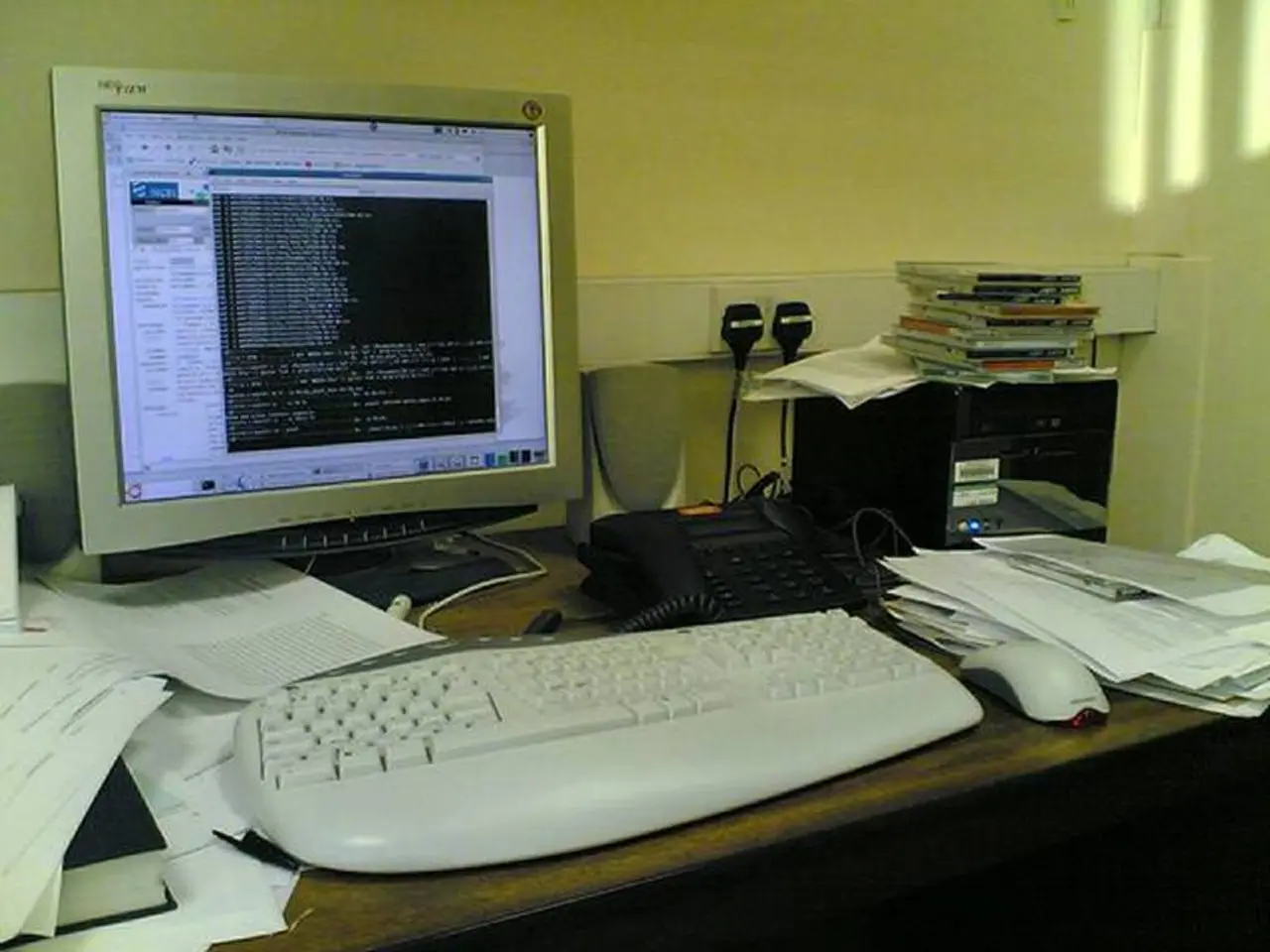Brain Function Impairment from Multitasking: Insights from a Neuroscientist's Perspective
In a world where multitasking is often glorified, a simple truth remains: task-switching can be challenging for most people. According to recent lab experiments, switching between two tasks can lead to slower performance and an increased number of errors. This article delves into the reasons behind this phenomenon, exploring the cognitive, physiological, psychological, and biological effects of task-switching.
Cognitive Load and Attention Shifts
The human brain is designed for focused attention, but it struggles with rapid shifts between tasks. Every task switch requires the brain to reorient its focus, retrieve relevant information, and suppress the previous task context. This process, known as "cognitive load overload," consumes significant mental energy and time, leading to mental fatigue, reduced efficiency, and increased errors.
Physiological and Neurological Factors
Task-switching places a heavy strain on the prefrontal cortex, the region responsible for executive functions. Overworking this region reduces its efficiency and limits flexible thinking. Frequent task-switching also trains the brain to favor rapid, shallow processing rather than deep, sustained focus, potentially weakening neural pathways associated with complex cognitive tasks and reducing synaptic growth.
Psychological and Biological Effects
Task-switching triggers stress responses, raising cortisol levels, and impairing memory, concentration, and emotional regulation. It makes it difficult for the brain to encode and retrieve information properly, resulting in impaired memory and flawed information retention. Despite the illusion of multitasking, the brain is only truly working on one task at a time. The rapid switching leads to more mistakes, lower quality work, and tasks taking longer to complete.
Compounding Factors
Environmental distractions, poor time management, and limited cognitive control systems can exacerbate the challenges of task-switching. External interruptions such as digital notifications and open workspaces increase the number of involuntary task switches, while personal work habits like the lack of structured "deep work" periods can make it harder for the brain to enter and maintain a focused state.
Strategies such as time blocking and minimizing interruptions can help reduce these negative effects. Taking a break between tasks can help with the difficulty of task-switching, but it does not eliminate attentional residue—the mind's struggle to fully let go of each task when switching.
In real life, it's common to need to switch tasks unexpectedly. When returning to an original task after a switch, performance may be poorer initially. memory plays a role in task-switching, as one must remember to return to the original task and resume from where one left off.
In conclusion, task-switching is challenging because it goes against the brain's natural tendency for sustained attention. The costs—in terms of mental effort, productivity, and cognitive health—are significant and well-documented. By understanding these challenges, we can take steps to minimise their impact on our daily lives.
This article addresses the question 'Why do I find it so difficult to switch between tasks?' For more fascinating insights into the human mind, visit our ultimate fun facts page on the website. If you have questions, you can email us at questions@our website, message our Facebook, X, or Instagram pages.
[1] Miller, G. A. (1956). The magical number seven, plus or minus two: Some limits on our capacity for processing information. Psychological Review, 63(2), 81-97. [2] Mesulam, M. M. (1981). The neuropsychology of attention: A review of the literature. Neuropsychologia, 19(5), 637-659. [3] Wagner, A. D., & Smith, E. E. (2003). The neuropsychology of task switching: A review of the literature. Neuropsychology, Development, and Cognition, 11(1), 33-59. [4] Engle, R. W., Kane, M. J., & Tuholski, S. W. (1999). Individual differences in working memory and general fluid intelligence: A unifying framework for cognition. Psychological Review, 106(3), 688. [5] Baddeley, A. D., & Hitch, G. J. (1974). Working memory. In G. H. Bower (Ed.), The psychology of learning and motivation: Advances in research and theory (Vol. 8, pp. 47-89). Academic Press.
- The human brain, designed for focused attention, finds rapid shifts between tasks, such as those involved in science research or workplace-wellness activities, challenging due to cognitive load overload and attention shifts.
- Frequent task-switching, whether in health-and-wellness pursuits or other athletic or intellectual endeavors, can lead to a strain on the prefrontal cortex, potentially weakening neurological pathways associated with complex cognitive tasks and impacting mental health.
- In an effort to minimize the impact of task-switching on our daily lives, strategies like time blocking and minimizing interruptions can be employed, as shown in the context of scientific research or health-and-wellness endeavors, to improve cognitive health and productivity.




